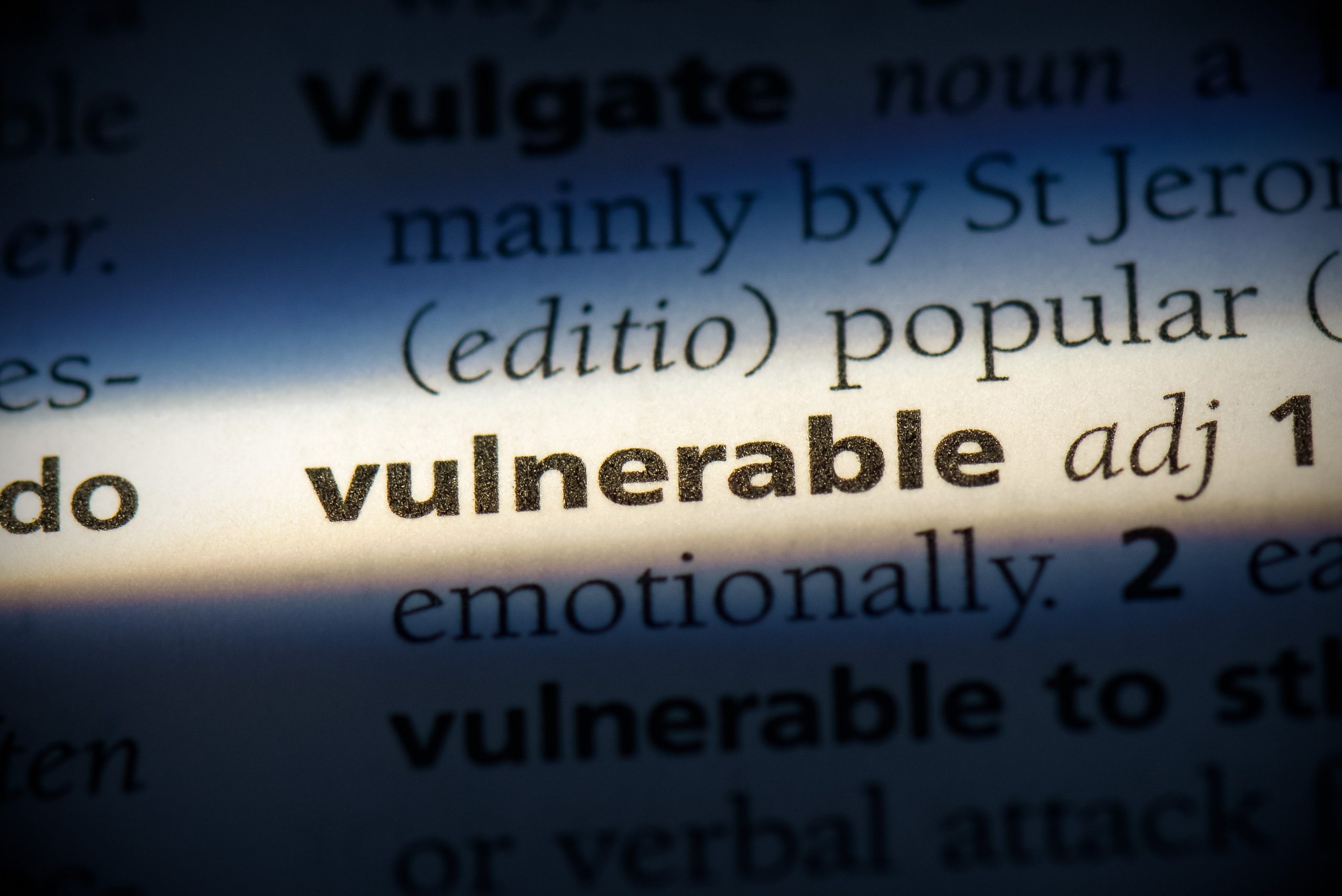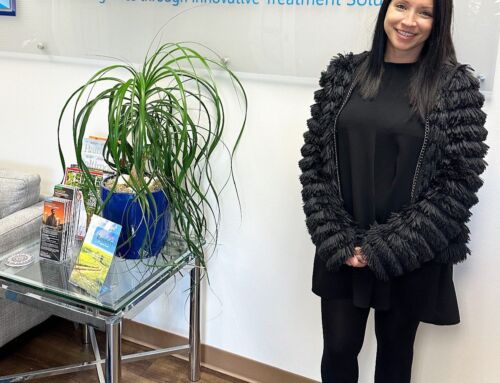Vulnerability is often seen as a dirty word. Many people confuse being vulnerable with being weak, which makes sense, because based on the dictionary definition of the work, vulnerability means “the quality or state of being exposed to the possibility of being attacked or harmed, either physically or emotionally.” Therefore, there is a good reason why people see vulnerability with weakness. If strength is typically seen as a positive quality, why wouldn’t people see vulnerability and weakness as a negative quality?
However, when looking deeper at vulnerability, it becomes clear that true strength actually comes from being vulnerable. Being vulnerable, especially in a society that often expects people to do everything in their power to keep from being exposed or harmed, actually is the true path the authenticity. Vulnerability is the purest form and the most direct way to get each of us to know and understand our authentic selves. Vulnerability offers an opportunity to create true self-observation and self-awareness; it helps to create a true sense of self.
You can see the value and importance of vulnerability in many of the leaders throughout society. Good leaders talk about being vulnerable, which in turn creates authenticity between them and those that they lead, and creates a culture of honesty, shared values, and investment. Vulnerability is also vital in healthy relationships, as it allows each person in that relationship, regardless of the type of relationship, to bring their authentic self into the relationship, allows for open communication, honesty and trust.
In relation to addiction and mental health, the importance of vulnerability and being vulnerable cannot be understated. In fact, it may be more important for someone dealing with addiction and mental health issues to be able to practice vulnerability than anyone else.
Here are 5 tips to practice vulnerability:
- Be vulnerable with yourself.
It is important to be able to be vulnerable with yourself. This helps you find your authentic self, find objective truth, identify and process your feelings, and allows you to offer yourself compassion. Being vulnerable with yourself can help you slow down when necessary, avoid focusing on other people’s perceptions of you or what you think they may think about you, give up the need to be perfect or achieve perfection, and remind yourself how brave and courageous you can be. Being vulnerable with yourself can also help you identify your feelings and then vocalize those feelings and needs to others. It’s okay to admit wrongs, mistakes, mess ups, and not knowing things. This is an easy way to begin being vulnerable.
- Practice being vulnerable with someone who is safe.
One of the most important ways to practice vulnerability is to practice being vulnerable with someone else who is safe for you. This could be a romantic partner, family member, or close and trusted friend. Find someone who is calm, compassionate, trustworthy, and gentle. This type of person can meet you where you’re at and will not offer judgement of your thoughts or actions. Being vulnerable with someone who is safe for you will help you build confidence, resiliency, and the ability to be vulnerable in other situations.
- Vulnerability is the antidote for shame.
Shame, and to some similar extent guilt, can pull us down if we have no outlet to process it or getting it out, sharing it, or getting rid of it. Finding a trusted, safe person and being vulnerable with that person goes a long way in alleviating shame and guilt. Speaking with what is going on with you can create connection and is a vital part of a healing process. By being vulnerable, transparent, and sharing the deepest parts of ourselves, our past, our thoughts, and our wishes and desires shines a light on truth, demonstrates bravery, and takes away shame.
- Let vulnerability be uncomfortable.
There is no question that vulnerability is uncomfortable. Being vulnerable is risky and can feel terribly dangerous or unsafe. There is no way around the discomfort that many feel when being vulnerable. So, lean into the discomfort. Understanding and being aware that the process of vulnerability is uncomfortable and often terribly frightening is okay. Recognize that, own that, and then embrace it. Let vulnerability be uncomfortable. However, also understand that vulnerability is also the only true way to find acceptance, connection, and freedom. Any such process tends to be messy and uncomfortable. But the benefits greatly outweigh the discomfort. Like Brene Brown says, “Embracing our vulnerabilities is risky but not nearly as dangerous as giving up on love and belonging and joy- the experiences that make us the most vulnerable.”
- Be vulnerable in real time.
There is never “the right time” or “the perfect time” to be vulnerable. The truth is, vulnerability should always be how to act, and we should act that way all the time. However, because of the reasons described above, that is rarely the case. Which is why we need to practice and continually practice vulnerability. There is never the perfect time to be vulnerable, but if we put off or delay being vulnerable or having difficult conversations or talking about something important or that we are fearful about, only delays issues and increases anxiety or difficulty with ourselves and in our relationships. Because there is never the perfect time to be vulnerable, it is perfect to be vulnerable all the time. Don’t put off or delay- if something is on your mind or weighing on your conscience, speak up about it in real time, when it’s important, and discuss it as you’re working through it.
Vulnerability is vital. It is vital as humans, it is vital in creating strong and healthy relationships, and it is important in creating acceptance and connection. Being vulnerable creates deep and meaningful connections with ourself and others, alleviates shame and guilt, and allows us and others to see us for who we truly are. Finally, vulnerability allows us to feel the important happiness, joy, and love that we all crave, and experience all the magic that life has to offer.
If you or someone you know needs help for addiction or co-occurring disorder issues, please give us a call. Maryland Addiction Recovery Center offers the most comprehensive dual-diagnosis addiction treatment in the Mid-Atlantic area. If we aren’t the best fit for you or your loved one, we will take the necessary time to work with you to find a treatment center or provider that better fits your needs. Please give us a call at (866) 929-4318 or email our team at info@marylandaddictionrecovery.com. For more information on all of our drug addiction, alcohol addiction, and co-occurring disorder services and recovery resources, please visit our website at www.marylandaddictionrecovery.com.

Table of Contents





